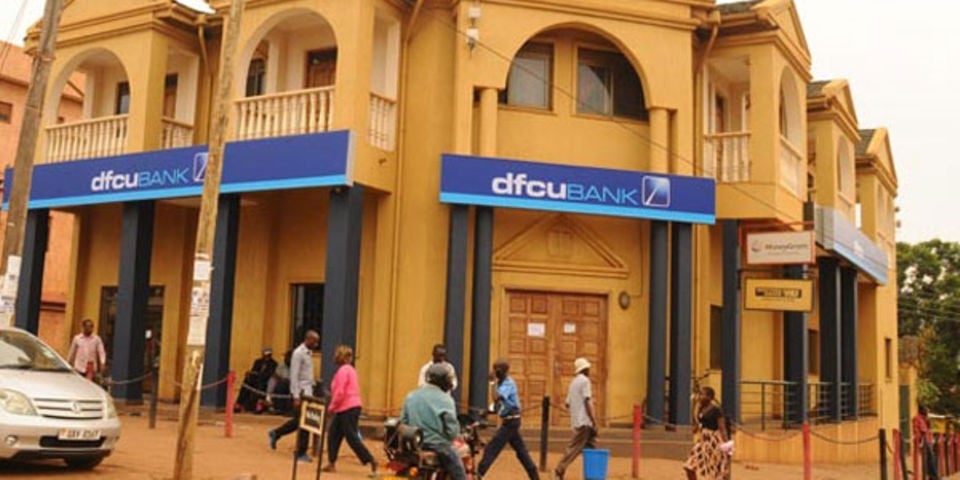Prime
New battle for defunct Crane Bank emerges

One of the branches of the defunct Crane Bank branches that had been taken over by dfcu Bank. PHOTO/FILE
What you need to know:
- The Central Bank in 2016 placed Crane Bank under receivership with some of its assets and liabilities sold to dfcu Bank
A renewed battle for the defunct Crane Bank has been kicked up by the Bank of Uganda (BoU).
The latest battle has seen the Central Bank issuing a public notice, alerting the general public of how it has written to the Uganda Registration Services Bureau (URSB) to strike out the word ‘bank’ from Crane Bank Ltd.
“Bank of Uganda hereby informs the public that in line with the Supreme Court decision in which the legal status of the defunct Crank Bank Limited was pronounced, it has, under Section 7 (1) (a) of the Financial Institutions Act, 2024 (as amended), advised Uganda Registration Service Bureau to strike the word ‘Bank’ off the company name of ‘Crane Bank Limited’ (the company),” read in part the BoU public notice released Thursday.
Adding: “The purpose of this notice is to notify the public of this development and to clarify on the status of that company under the Financial Institutions Act, 2004.” However, CBL was registered on July 23, 1990.
On July 1, 2022, the Supreme Court ordered the Central Bank to foot all the legal costs involving the multi-billion case that Crane Bank in receivership had brought against city businessman, Sudhir Ruparelia.
The court also held that the receivership of Crane Bank ended on January 20, 2018, hence its management reverted to the original shareholders and shouldn’t continue being under the control of the Central Bank.
“The appeal is hereby dismissed with costs in the terms found by the Court of Appeal. The costs shall be borne by the Bank of Uganda,” held the court.
It further ruled: “The appellants’ (Crane Bank) receivership ended on January 20, 2018, and consequently, its management reverted to the shareholders.”
Mr Ruparelia owned more than 51 per cent of the shares of the defunct bank alongside other business partners.
Explaining why URSB should strike out the word ‘bank’ from Crane Bank Ltd, Mr Kenneth Egesa, the Director, of Communications at BoU, said since the defunct Crane Bank does not have a license to trade as a commercial bank, it was prudent that it's addressed rightly so.
“Crane Bank no longer has the authority from the Central Bank to use the word ‘bank’ that is why we had to communicate to URSB about this current status,” he explained by telephone last evening.
When asked whether URSB had complied and struck off the word bank from Crane Bank, Mr Egesa said they had already written to them to comply.
Efforts to reach out to Mr Denis Nabende, the spokesperson of URSB were futile as his known phone number was switched off by press time Friday morning.
Background
The facts that led to this Shs397b legal battle is that on October 20, 2016, Crane Bank was placed under statutory management by BoU under Sections 87 (3) and 88 (1) of the Financial Institutions Act for being under capitalised.
The Central Bank pursuant to Section 94 of the Financial Institutions Act, placed Crane Bank under receivership with some of its assets and liabilities sold to dfcu Bank.
On June 30, 2017, Crane Bank in receivership, filed a commercial case before the High Court, Commercial Division in which it was seeking to recover over Shs397b from Mr Ruparelia, accusing him of misappropriating the funds as the director and shareholder with his Meera Investment Company.
But on August 29, 2019, then presiding judge, David Wangutusi, delivered his ruling in which he dismissed the multibillion commercial dispute on grounds that Crane Bank in receivership lost its legal powers “to sue” Mr Ruparelia or “to be sued”, the moment it was placed under receivership.
Crane Bank in receivership was dissatisfied with the decision of the Commercial Court and appealed to the Court of Appeal, which appeal was equally dismissed on similar reasons.
But still dissatisfied with the judgment of the Court of Appeal, Crane Bank in receivership, went on and appealed to the highest court in the land (the Supreme Court), but withdrew the main appeal even before the court could hear it out.
Crane Bank was not satisfied that the orders of the Supreme Court also included that its management revert to the original shareholders, a contestation that the court dismissed in July 2022.



